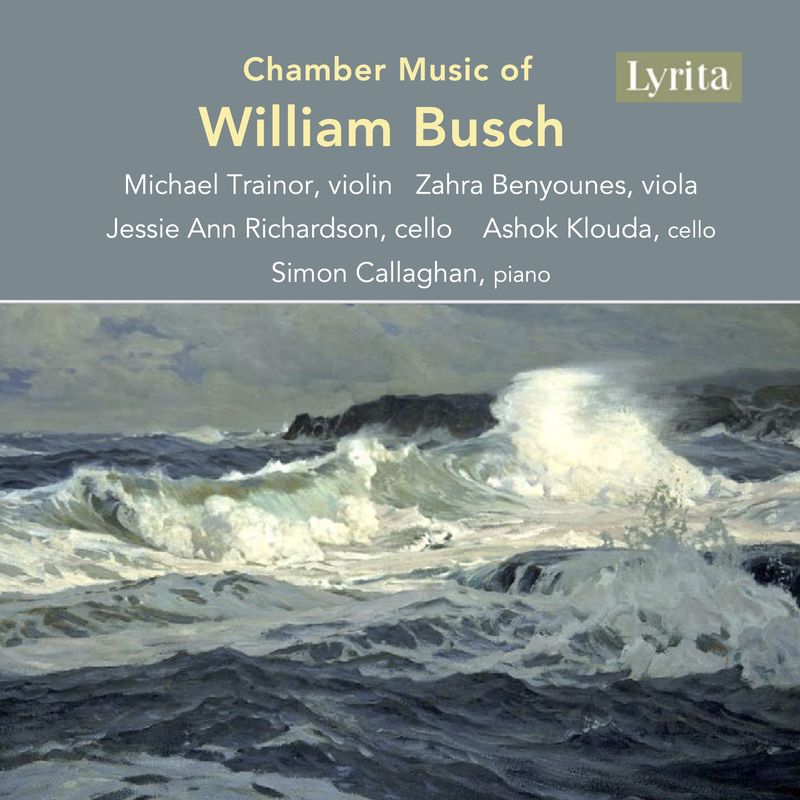New Album Release
Busch Chamber Music on Lyrita
I'm very pleased to announce the release of this special new album on Lyrita, consisting of the complete strings & piano chamber music by William Busch (1901-45).
The performances here are excellent. The members of the Piatti Quartet, violinist Michael Trainor, violist Zahra Benyounes and cellist Jessie Ann Richardson are joined by pianist Simon Callaghan and cellist Ashok Klouda. It’s Klouda who plays the Suite and Elegy, with Callaghan. The recording in the Concert Hall, Wyastone Leys has been well judged and the notes, as mentioned, are in the best of hands – Paul Conway’s. Busch is a composer with a gift for expressive intensity and this valuable disc contains what I assume are premiere recordings. Jonathan Woolf, MusicWeb International
There's quite a variety of repertoire on the disc, and these notes by Paul Conway offer a taster of what to expect:
Three pieces for violin and piano were written as individual works and, as such, they can be presented separately or, if given collectively as a suite, played in any order.
Busch wrote his Passacaglia for violin and viola in 1939, the score takes the form of a decisive, four-bar theme followed by thirty variants upon it. These mini-variations range widely in character, from trenchant and forceful to airy and smooth.
A Memory for cello and piano was written for Elizabeth Poston. Busch subtly conveys the idea of a reminiscence suggested by the title with simple, lightly sketched ideas presented with an air of hazy nostalgia. Eventually, the feeling of distance and reserve created in the opening portion of the work is replaced by a more troubled mood. The music ends in sorrow with a heartfelt, steeply descending sequence for unaccompanied cello followed by the merest hint of the opening material.
The Quartet for piano and strings is the most substantial of William Busch’s chamber pieces. Although the composer’s lyrical gifts are much in evidence, the four movements are also rigorously concise. Considerable dramatic rewards are gained from the creative tension between the music’s unforced expressivity and the formal rigour with which Busch’s powerful themes are worked out.
The Suite for Cello and Piano is among Busch’s most searching and variegated instrumental works. In a postwar assessment of the score, The Times’ critic noted that its four pieces ‘reveal a sensitive and interesting mind’. Elegy for cello and piano exploits fully the stringed instrument’s lyrical qualities and capacity for rich, autumnal colours. The work begins with an extended soliloquy for unaccompanied cello and the cellist continues to preside over the entire opening section, which features only a couple of brief interjections from the piano.

